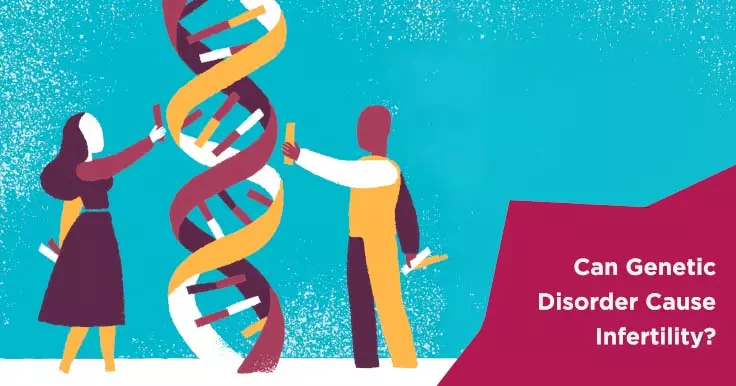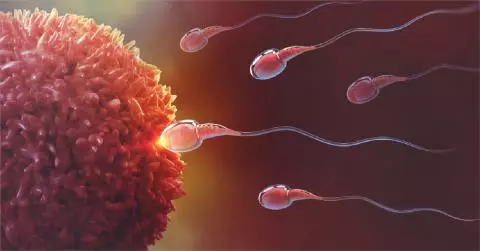How Does Genetic Disorders Affect Infertility in Male and Female?

Getting pregnant is a process that involves both male and female partners. There are several factors that can render a male or female infertile. A genetic disorder is one such factor. While some genetic disorders specifically impact males or females, some can impact both. Here are some common genetic disorders that can cause infertility in men and women:
Genetic Disorders Related Male Infertility
Below listed are the genetic disorder related infertility issues that are found in men:
- Klinefelter Syndrome: Klinefelter Syndrome happens if a male has an extra X chromosome in his genome. Males suffering from this syndrome have no sperm in their semen or very low sperm count and testosterone.
- Cystic Fibrosis Gene Mutation: It is a genetic disorder marked by the absence of a vas deferens in the male. If the vas deferens is absent, sperm cannot pass from the testicles to the urethra for fertilization of the eggs.
- Y Chromosome microdeletions: In some cases, males may have normal chromosomes but very tiny areas of their Y chromosomes may be missing. These missing portions are known as microdeletions. This may result in severe sperm abnormality and can cause male infertility.
Genetic Disorders Related Female Infertility
Causes of infertility in women due to genetic disorders include the following:
Kallmann Syndrome: Klinefelter It is an ovulatory disorder that prevents an individual from the beginning or completing puberty. The cause is related to the failure to produce gonadotropin-releasing hormone by the hypothalamus or reduced activity of the hormone. This results in low levels of the sex hormone in females. This syndrome also impacts the production of testosterone in males.
Fragile X Syndrome: Females suffering from this syndrome are impacted by fragile X-related primary ovarian insufficiency (FXPOI). It is a condition in which females undergo long duration of time without ovulating or having menstrual periods or experience menopause before reaching the age of 40.
Primary Ciliary Dyskinesia: This condition impacts the function of cilia in fallopian tube in females and flagella of sperm cells in males. Due to the dysfunction of the oviductal cilia, females suffer from reduced fertility. It also results in immobility of sperm in males and causes infertility.
 Infertility Counselling
Infertility Counselling Female Infertility Treatment
Female Infertility Treatment Andrology Treatment
Andrology Treatment Fertility Enhancing Surgeries - Female
Fertility Enhancing Surgeries - Female Fertility Enhancing Surgeries - Male
Fertility Enhancing Surgeries - Male Endoscopy Treatment
Endoscopy Treatment IUI Treatment
IUI Treatment IVF Treatment
IVF Treatment ICSI Treatment
ICSI Treatment Advanced IVF Solutions
Advanced IVF Solutions Embryology
Embryology Vitrification Egg, Embryo, Sperm Freezing
Vitrification Egg, Embryo, Sperm Freezing Preimplantation Genetic Testing (PGT)
Preimplantation Genetic Testing (PGT) Donation Program Embryo / Egg / Sperm
Donation Program Embryo / Egg / Sperm Self-cycleTM IVF
Self-cycleTM IVF

 Self-cycleTM IVF
Self-cycleTM IVF









